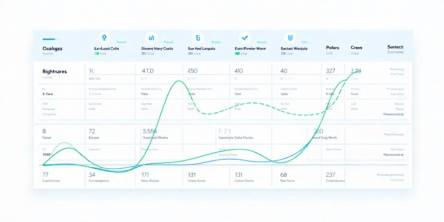React Native vs Ionic: Best Framework For Your App Development

The ether of mobile app development has come a long way. The entire paradigm has changed how we interact with mobile apps. At the initial stages, the development process included only simple decisions such as design, features and the cost of creating the app. However, the entire process has changed now.
These days, mobile application development starts with the selection of the right app development framework.
Speaking about frameworks, today there are a plethora of options to choose from like Flutter, AngularJS, Ionic, React Native, etc.
Considering the mobile app development wave in recent times, let us focus on two of the most powerful mobile app development frameworks: Ionic and React Native.
It is a common assumption that all the cross-platform frameworks function similarly and making the choice is simple, you just need to choose the stack with which you are most comfortable.
React Native & its features
React native has been developed by Facebook and it uses JavaScript-- one of the most popular languages used by mobile developers today. React Native enables in creating high-end applications for bespoke operating systems.
App developers can use this code again from the framework and do not need to build an application from scratch. One of the most preferred tools to create applications for Android and iOS operating systems.
- Reusability across Android and iOS saves development time and cost.
- Virtual-DOM support permits viewing changes in real-time.
- The entire community of React Native developers is huge.
- The code that has been written by one developer can be read, studied, understood and extended easily by other developers.
- The same code can be used in, both, iOS and Android.
- Any pertaining Issues with React Native apps for Android or iOS can easily be resolved quickly.
Ionic & its features
Ionic has been developed by Drifty using TypeScript. It is an open-source platform for developing hybrid mobile applications using HTML5, JavaScript and CSS technologies. Apps built with the Ionic framework are largely focused on UI, appearance, and feel. Ionic utilizes a combination of Apache Cordova and Angular.
Hence for many developers, Ionic is the first choice for mobile app development. It provides tools such as HTML5, CSS, SaaS, etc to develop top-notch hybrid mobile apps to be run on Windows, Android, and iOS.
- Ionic is an open-source framework mainly utilized for developing hybrid mobile applications.
- It has been built on top of AngularJS and Apache Cordova.
- The framework comes with a command-line interface (CLI) empowering developers to build and test apps on any platform.
- It has multiple functionalities available with native app development SDKs to develop apps and customize them for the different OS then deploy through Cordova.
- Apps developed on this framework require one-time development and can be deployed on Android, iOS and Windows platforms.
- Ionic provides the ease to build apps using HTML5, CSS, and JavaScript technologies.
- These apps are majorly focused on UI to provide a better user experience.
- Ionic has a range of exciting elements to choose from for development.
Performance
In terms of performance, the Android apps that are developed with React Native usually have a better performance score than ones developed with Ionic. This is because Ionic uses web-view in mobile app development and this is not the case with React Native framework.
Design
Ionic has plenty of pre-developed elements allowing to create elegant apps with excellent UI. This is where Ionic beats React Native when it comes to design. React Native has few pre-developed elements as compared to Ionic.
Cost
Developing apps with Ionic is cheaper than developing with React Native. This is because, in Ionic, the same code can be utilized across different platforms
Conclusion
With the power of AngularJS and Apache Cordova, Ionic lets you build hybrid apps that are powerful and future-ready. And, as discussed before, Ionic is cheaper compared to its counterpart; get in touch with an Ionic app development company and experience the power of mobile app in this mobile-first world.
Similar Articles
Food delivery applications, including Uber Eats, DoorDash, Zomato, Swiggy, and Grubhub, generate large volumes of valuable data.
Modern businesses are drowning in communication overload, and much of that burden stems from outdated tools that simply can’t keep up
Building lending software isn’t just a technical project—it’s a business decision. Whether you're a fintech founder or part of a traditional lending institution trying to go digital, three questions will shape everything that follows
Learn why robust security is crucial for super app development. Explore key strategies and best practices for mobile app development security.
Walkie-talkies with an extensive reception capacity have changed significantly when it comes to portable communication by displaying cutting-edge features with seamless connectivity that covers more than just the state
USB-C technology has revolutionized the way we charge our devices, offering faster charging speeds, higher power delivery, and universal compatibility across multiple devices
Discover expert mobile app development strategies to create a viral app that attracts users and boosts engagement
Optimize app localization for iOS users across the EU with language, cultural, and regulatory adaptations. Engage users and boost retention with these tips!
Discover the top 10 mobile app development trends of 2024! Explore 5G, AI, AR/VR, blockchain, and more to stay ahead in the ever-evolving app development landscape.









